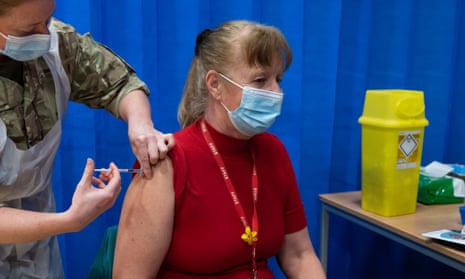Older people who have recovered from Covid cannot assume they are immune from a second attack, according to a new study that shows the under-65s are much less susceptible to reinfection.
The study carried out in Denmark found that the under-65s had about 80% protection for at least six months from catching Covid a second time. But the over-65s had only 47% protection.
The authors of the research, published in the Lancet medical journal, say this means it is vital to take measures to protect elderly people, who also are more likely to die from Covid. “Our study confirms what a number of others appeared to suggest: reinfection with Covid-19 is rare in younger, healthy people, but the elderly are at greater risk of catching it again,” said Dr Steen Ethelberg from the Statens Serum Institut in Denmark.
“Since older people are also more likely to experience severe disease symptoms, and sadly die, our findings make clear how important it is to implement policies to protect the elderly during the pandemic. Given what is at stake, the results emphasise how important it is that people adhere to measures implemented to keep themselves and others safe, even if they have already had Covid-19. Our insights could also inform policies focused on wider vaccination strategies and the easing of lockdown restrictions.”
Denmark has a very comprehensive testing programme, with PCR swab tests made available to anyone who wants one, whether or not they have symptoms. More than two-thirds of the population, 4 million people, were tested in 2020. The researchers looked at the proportions of people who tested positive in the first wave, between March and May, and again in the second wave, from September to December. They also looked at second infections at any time during the pandemic in a group of 2.5 million people.
Prof Rosemary Boyton and Prof Daniel Altmann, from Imperial College London, say in a commentary in the journal that the findings are sobering because case reports have previously suggested that reinfection is extremely rare. In that light, “many will find the data reported … about protection through natural infection relatively alarming,” they write. “Only 80% protection from reinfection in general, decreasing to 47% in people aged 65 years and older are more concerning figures than offered by previous studies.”
They say the study reinforces the case for mass immunisation programmes – to include those who have contracted Covid in the past.
“These data are all confirmation, if it were needed, that for Sars-CoV-2 the hope of protective immunity through natural infections might not be within our reach and a global vaccination programme with high efficacy vaccines is the enduring solution,” they write.
